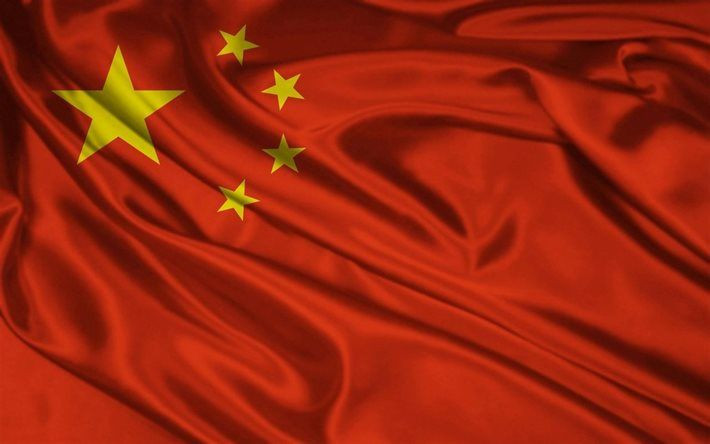
In the world of global power politics, China's long-professed principle of "non-interference" in the domestic affairs of other nations is increasingly exposed as nothing more than diplomatic theater. From Africa's mineral-rich heartlands to Southeast Asia's conflict zones, Beijing's actions tell a far different story than its carefully crafted rhetoric, revealing an emerging pattern of imperial overreach disguised as neutrality.
The Democratic Republic of Congo stands as an example in China's duplicitous playbook. This central African nation, which supplies over 40 percent of the world's tantalum – a crucial mineral for electronics and aerospace industries – has become a chess piece in China's global resource strategy. Beijing's sudden concern for peace in eastern Congo is transparently self-serving, as conflict threatens to disrupt the flow of critical minerals to Chinese factories.
Yet hypocrisy is precisely what defines China's approach. After years of maintaining profitable relationships with both the DRC and Rwanda regardless of their bitter conflict, China has only recently shifted its stance, directly asking Rwanda to end its backing of the M23 rebel group.[1] This calculated move comes as rebel advances threaten Chinese mining interests, particularly in South Kivu where reports indicate some 450 illegal Chinese mining operations.
Only when Chinese economic interests face direct threats does Beijing suddenly discover its moral compass regarding territorial sovereignty. What we're witnessing is resource colonialism wrapped in diplomatic language. China's vote supporting a UN Security Council resolution condemning Rwanda's role in the conflict marks a deviation from its usual practice of abstaining on issues involving allies – but this exception proves the rule. When billions in mineral wealth are at stake, China's commitment to non-interference evaporates.
Myanmar offers an even more blatant example of China's interventionist approach. Having long maintained close ties with Myanmar's military junta while publicly claiming neutrality, China has now inserted itself directly into the country's civil conflict. Chinese special envoy Deng Xijun has personally supervised the handover of Lashio, the northern Shan State capital, from the Myanmar National Democratic Alliance Army (MNDAA) back to the military regime.[2]
Indeed, China has sent a team to monitor a ceasefire it brokered between Myanmar's military and the MNDAA, a rebel group composed mainly of ethnic Chinese. Foreign Ministry spokesperson Guo Jiakun's claim that China "supported various parties in Myanmar in carrying out friendly consultation toward political reconciliation" is diplomatic doublespeak for direct manipulation of Myanmar's internal politics. This reveals the stark reality behind China's "non-interference" facade. When Beijing perceives its strategic interests at risk, it actively intervenes to maintain the status quo or reshape power dynamics to its advantage.
China's approach represents a sophisticated form of neo-imperialism. Unlike Western powers that often justify interventions with humanitarian or democratic rhetoric, China cloaks its self-interest behind claims of neutrality and respect for sovereignty. Yet the outcomes are strikingly similar – foreign powers determining who rules and who falls in sovereign nations. The pattern is consistent across continents. In both the DRC and Myanmar, China's involvement centers on securing access to valuable resources and maintaining political stability favorable to Chinese economic interests. The suffering of local populations caught in conflict zones remains a secondary concern at best.
China's strategy relies on maintaining plausible deniability. Experts suggest China primarily works through multilateral platforms like the UN Security Council and African regional organizations, providing a veneer of international legitimacy to its interventions. This allows Beijing to present itself as a responsible global stakeholder while simultaneously advancing its narrowly defined national interests.
- The brains behind Matavire’s immortalisation
- Red Cross work remembered
- All set for inaugural job fair
- Community trailblazers: Dr Guramatunhu: A hard-driving achiever yearning for better Zim
Keep Reading
The consequences for countries caught in China's web are severe. In the DRC, the conflict has killed thousands and displaced millions. In Myanmar, a devastating civil war continues while China props up an illegitimate military regime against the will of the people. All the while, Beijing extracts valuable resources and extends its geopolitical influence. As major powers increasingly compete for control of critical minerals and strategic locations, China's "non-interference" principle has become little more than a convenient myth – deployed when advantageous and abandoned when necessary. The stark reality is that China interferes persistently and substantially in other nations' affairs whenever its interests demand it.
For countries like the DRC, Rwanda, and Myanmar, Chinese "friendship" comes with strings attached – strings that increasingly resemble the colonial bonds of the past century, merely updated for a new era of great power competition. Behind the diplomatic niceties and development rhetoric lies the harsh reality of a rising power determined to secure its interests regardless of the cost to sovereignty, democracy, or human lives.










